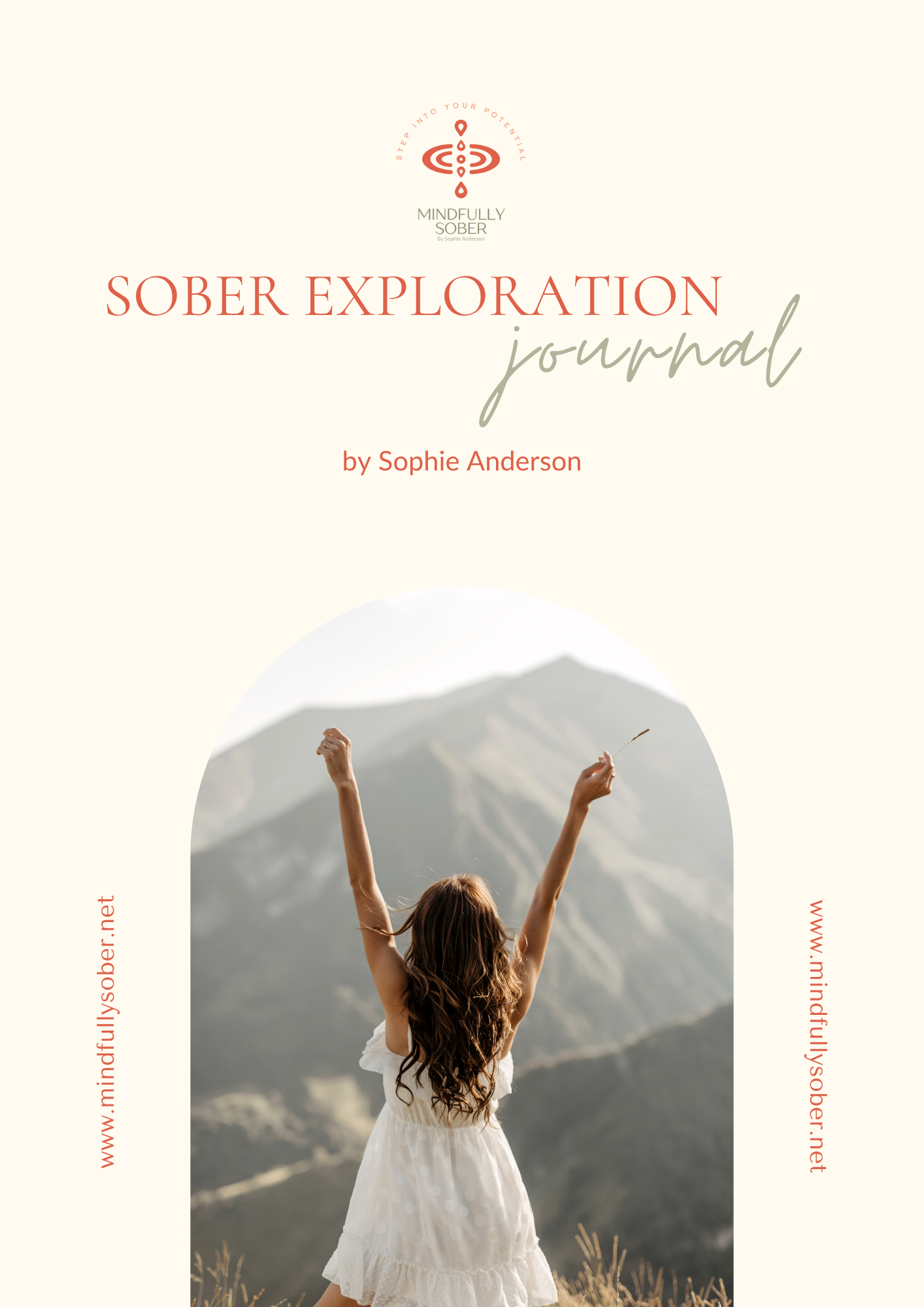5 Habits That Make Quitting (or Cutting Back) on Alcohol So Much Easier
The top 5 habits you need to develop now to make this a smoother transition.
When people think about reducing alcohol, they imagine it’s going to take superhuman discipline.
But here’s the truth: if you build the right habits, it’s less about willpower and more about setting yourself up for success.
I talk about this a lot: you don't need willpower if you have the right system, mindset, and support.
These five habits are backed by research, and they work whether you’re quitting entirely or simply rethinking your relationship with alcohol.
"Discipline isn’t about forcing yourself to do what you hate. It’s about becoming the kind of person who loves what moves them closer to their vision."
– Sophie Anderson
1. Get Curious About Yourself
People who reduce their drinking long term often have a habit of asking, “Why am I doing this right now?”
This isn’t about judging yourself—it’s about noticing patterns.
Research shows that just a few minutes of mindfulness each day can reduce cravings and help you choose differently next time. It’s like shining a light on autopilot.
And it’s not just about alcohol. In life, these people pause after a conflict and think, “Why did I react like that? What triggered me?”
They don’t keep pushing when they’re stressed. They stop and ask, “What’s actually stressing me, and what do I control here?”
They’re fascinated by understanding themselves, whether it’s their moods, their habits, or the way they handle challenges. Autopilot is their least favourite setting.
2. Write Down Who You Want to Become
If you want to change your habits, you have to know the kind of person you’re becoming.
Studies show you’re 42% more likely to achieve a goal if you write it down. That’s huge. This is more than just “I drink less”, or "I don't drink anymore"; it’s painting a clear picture of the kind of life you want to live, and the version of you who’s living it.
And they don’t just write big “SMART” goals.
They jot down ideas, random wishes, and to-do lists. They might record a quick voice memo about something they’d like to try or a thought that inspired them.
If you ask them what they want for their birthday, they usually have an answer, because they’re in touch with the things that light them up.
3. Declutter Your Environment (and Your Boundaries)
If your fridge is full of wine, chances are you’re going to drink wine.
People who change their relationship with alcohol make it easier on themselves by removing temptations and setting clear boundaries—both with themselves and with others. Even small shifts in your space can lower stress, and when stress is lower, willpower is easier to keep. The work of James Clear in his book "Atomic Habits" is very helpful with making those changes to our environment.
But the most important element here is it shows up in every part of their lives. They’ll notice an appliance on the kitchen bench they haven’t used in a while, and they’ll give it away. They’ll donate the pants that haven’t fit in two years instead of letting them quietly crush their self-esteem.
They don’t see letting go as scary—it’s simply making space for things that serve them now.
4. Improve, Don’t Just Remove
Alcohol often fills a gap; whether it’s connection, relaxation, or excitement.
Those who succeed don’t just take it away, they replace it with hobbies, social activities, or habits that feel good in the moment.
Studies show that when you swap a coping behaviour with something positive, you’re far more likely to stick with the change.
They live by the belief that if they remove something, they gain space for something better. They plan ahead for what will fill that gap. Perhaps rest, creativity, or connection, rather than letting it be filled by something just “less bad.”
They’re the type of person who thinks “It can always get better.”
5. Prioritise Rest & Recovery
Good decisions need a rested brain. Poor sleep is one of the strongest predictors of relapse, because alcohol messes with your REM sleep, you start the day tired, stressed, and more likely to give in to cravings.
Better sleep = better mood = better choices.
These people also apply rest outside of sobriety. They take breaks when they need them, they use sick days without guilt, and they understand that recovery time isn’t indulgent—it’s essential. They know they make their best choices when they’re well-rested.
What you can do now
This isn’t about whether you already “fit in” with these habits.
Ready to give them a go? Start practicing them now, little by little. Write them down, and see what small changes you can make in your daily routine to allow them.
Because the more these habits become part of your everyday life, the less discipline you’ll need to make big changes.
Mindfully Sober is not about perfection — it’s about possibility.
It's a coaching program built for the high-functioning, sober-curious people who want to live on purpose — aligned with their values, not society’s expectations.
I believe you deserve to feel good in your life, proud of your choices, and clear about your future.
Every time you choose to listen to your inner voice, you come back to yourself.
And that’s where real freedom begins.
Be on your own side,
Sophie 🌿

Sophie Anderson is an ICF-certified coach, wellness expert, and founder of Mindfully Sober. Completely alcohol-free since 2020, she empowers others to step into their potential by creating a life they don’t need to escape from. With a compassionate, practical approach, Sophie helps clients break free from drinking culture and live with clarity, confidence, and purpose.
Download your Sober Exploration Journal Now

No spam. I promise integrity in everything I do, real talk, powerful tools, and a path to a life you love.
Sophie


